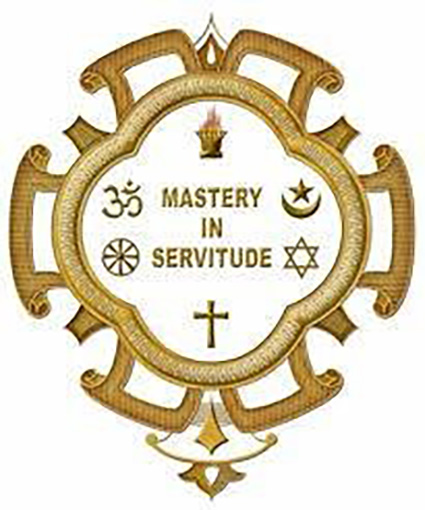The part played by ego in human life may be compared to the function of ballast in a ship. The ballast…keeps it from oscillating too much…[Ego] secures a working equilibrium, which makes for a planned and organized life…[It is] a necessary evil, which has come into existence for the time being. (Discourses, 7th edition, online edition, Part 2, page 161)
Real ego is never born and it never dies. Ego is always real, but due to the mind, the ego feels and acts as the limited and false “I.”
The only obstacle on the Path is the ego. Volumes have been written on the nature of the ego. But book-knowledge helps very little, and by one’s own efforts the ego remains insurmountable.
The ego is made of variegated desires, and the destroying of these desires amounts to the destruction of the ego. (Discourses, 7th edition, online edition, Part 2, page 168)
The ego is the center of all human activity. The attempts of the ego to secure its own extinction might be compared to the attempt of a person to stand on his own shoulders. Just as the eye cannot see itself, the ego is unable to end its own existence. All that it does to bring about self-annihilation only goes to add to its own existence. (Discourses, 7th edition, online edition, Part 2, page 143)
[The] tactics of the ego are very much like guerrilla warfare and are the most difficult to counteract. The ousting of ego from consciousness is necessarily an intricate process and cannot be achieved by exercising a constantly uniform approach. (Discourses, 7th edition, ref. page 171, online edition, Part 2)
The problem of erasing ego from consciousness is very complicated…because the roots of the ego are all in the subconscious mind in the form of latent tendencies…[C]omplete annihilation of the ego is possible only when all the constituents of the ego pass through the fire of intelligent consciousness…These components of the explicit ego have to be brought to the surface of consciousness somehow…This release of inhibited tendencies naturally brings about additional confusion and conflict in the explicit ego. (Discourses, 7th edition, online edition, Part 2, page 168)
The only experience that makes for the slimming down of the ego is the experience of love…The ego is the affirmation of being separate from the other, while love is the affirmation of being one with the other. (Discourses, 7th edition, online edition, Part 2, page 167)
The mind retains all impressions and dispositions in a latent form. The limited “I” or ego, is compounded of these sanskaras. (Discourses, 7th edition, online edition, Part 2, page 328)
[The ego is] a product of ages of ignorant action. (Discourses, 7th edition, online edition, Part 2, page 165)
Our ego keeps us aloof from our own Real Self. Ego is so mighty that it makes us deceive our own Self.
The ego is composed of fulfilled and unfulfilled desires and creates the illusion of feeling finite, weak and unhappy. (The Awakener Magazine, Vol 18, No 1, page 26)
Owing to ego, your life becomes infinitely heavy and bulky. Ego is the obstacle. (Sourced from Darshan Hours, Begin the Beguine press, page 31. Available from Sheriar Books.)
[A] desire to know one’s own true nature cannot lead to the Truth as long as the burden of ego is placed on consciousness. (Discourses, 7th edition, online edition, Part 2, pages 142-43)
The ego attempts the integration of experience, but it does so around the false idea of separateness. Having taken an illusion as the foundation for the construction of its edifice, it never succeeds in anything but the building of illusions one upon another. (Discourses, 7th edition, online edition, Part 2, page 176)
The ego attempts to solve its inner conflicts through false valuations and wrong choices …[I]t takes all that is unimportant as important. Thus, although power, fame, wealth, ability and other worldly attainments and accomplishments are really unimportant, the ego takes delight in these possessions and clings to them as “mine.” On the other hand, true spirituality is all-important for the soul, but the ego looks upon it as unimportant. (Discourses, 7th edition, online edition, Part 2, page 162)
The ego…seeks self-expression either in the role of someone who is decidedly better than others or in the role of someone who is decidedly inferior…The balance between the “I” and the “you” is constantly disturbed by the predominance of a superiority or inferiority complex. (Discourses, 7th edition, online edition, Part 2, pages 172-73)
[T]he explicit ego has a tendency to live through any one of the opposites of experience …The ego is hydra-headed and…lives upon any type of ignorance. Pride is the specific feeling through which egoism manifests. (Discourses, 7th edition, online edition, Part 2, page170)
The ego affirms its separateness through craving, hate, anger, fear, or jealousy. (Discourses, 7th edition, online edition, Part 2, page 166)
[W]hen the ego assumes control of human consciousness…[it] may be compared to a driver who has a certain amount of control over a car and a certain capacity to drive it, but who is in complete darkness about its ultimate destination. (Discourses, 7th edition, online edition, Part 2, page 175)
The ego is an affirmation of separateness. It takes many forms. It may take the form of a continued self-conscious memory expressing itself in recollections…[or] ego-centered hopes for the future expressing themselves through plans…[or of] a strong feeling of being someone in particular. (Discourses, 7th edition, online edition, Part 2, page 166)
[S]ince the ego takes shelter in the false idea of being the body, it is the source of much illusion, which vitiates experience…[It] creates an artificial division between external and internal life in the very attempt to feel and secure its own existence. (Discourses, 7th edition, online edition, Part 2, pages 161-62)
What you do for Baba is not ego.
